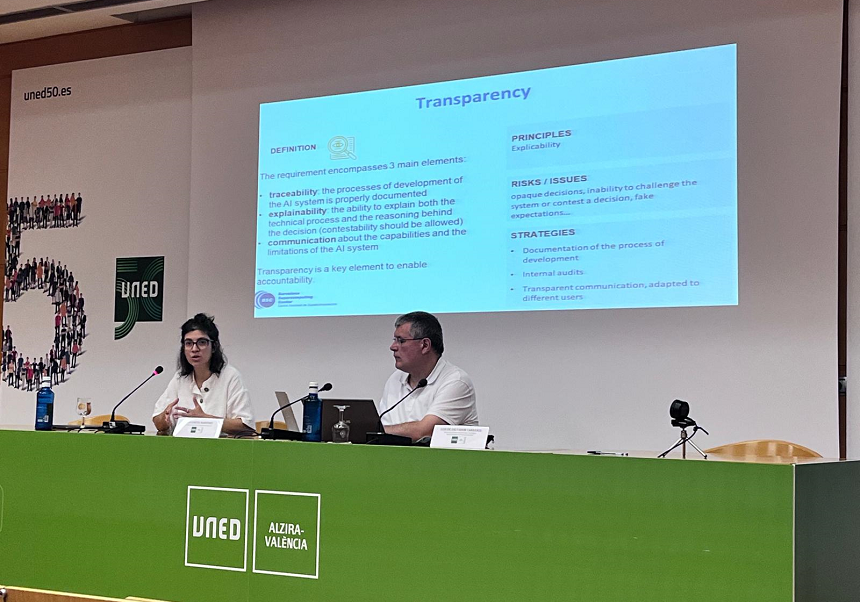
The course “Procedures for the design, implementation and deployment of High Risk Artificial Intelligence systems” which was held from 25th to 27th June at the UNED headquarters in Alzira focused on providing the necessary knowledge to understand the basic requirements of the Artificial Intelligence (AI) Act from the conformation of datasets to the implementation of compliance processes linked to fields such as risk analysis in the context of AI which gave its name to the session. Professor Ricard Martínez's presentation consisted on the risk approach focused on the guarantee of fundamental rights.
The EU's AI Act designs a complex system aimed at ensuring that the development of high-risk AI systems is safe by considering the guarantee of fundamental rights and the avoidance of systemic risks to democracy and the rule of law. It also aims at designing secure products subject to compliance validation and both dimensions are subject to well-defined processes that require a multidisciplinary and integrated approach.
Among the processes covered in the course were also the guarantee of rights, data governance and security, among others. In addition, from the approach of AI in healthcare, the use of large language models or the deployment of AI, whether understood as a medical product or embedded in devices of this nature, was addressed with real cases.
The EUCAIM project was, in this sense, an example of the challenges of AI in healthcare. The initiative addresses the fragmentation of existing cancer image repositories and will establish a distributed Cancer Image Atlas with more than 60 million anonymized cancer image data from more than 100.000 patients.
The system will be accessible to clinicians, researchers and innovators across the EU for the development and benchmarking of reliable AI tools. IRTIC's privacy and security team is leading the tasks that ensure proper regulatory compliance of the project.

EUCAIM is co-funded by the European Union under Grant Agreement umber 1011100633. Views and opinions expressed are however those of the author(s) only and do not necessarily reflect those of the European Union. Neither the European Union nor the granting authority can be held responsible for them.
EUCAIM is an Action supported by the Generalitat Valenciana through the Conselleria of Innovation, Industry, Trade and Tourism.











